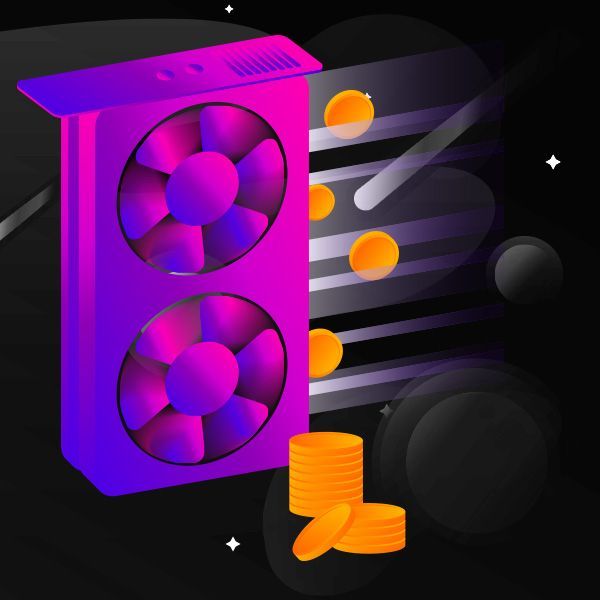From Fiat to Crypto: How to Buy Crypto for the First Time
In this section, we’re going to talk about the process of how to buy crypto for the very first time!
So - you did your research, weighed all of the pros and cons, read all sections in our Crypto 101 Handbook, and have come to the conclusion that you do, in fact, want to become a cryptocurrency owner. It’s time to buy your first cryptocurrency!
While revelations like this are exciting, for sure, you quickly realize that you don’t even know where to start! Like, does it matter which crypto you buy, or what currency you use to buy it? What about the regulations, different order types, storage options, and so on, and so forth? Well, worry not - I’m here to help you out!
In this crypto beginner’s guide, we’ll look into the process of buying cryptocurrency for the first time, and how to trade cryptocurrency for beginners. I’ll guide you through the entire process, explaining every single step, so that you wouldn’t find yourself confused, at any point. At the end of this section, I’ll also tell you the very first thing that everyone needs to do after they’ve purchased their crypto - stick around and find out!
Let’s get to it, then!

Video Explainer
Video Explainer: From Fiat to Crypto: How to Buy Crypto for the First Time
Reading is not your thing? Watch the "From Fiat to Crypto: How to Buy Crypto for the First Time" video explainer
How to Buy Crypto SAFELY With a Credit Card (Animated)


The Process of Buying Crypto for the First Time
So, if you’re looking at how to buy crypto with a credit card, where do you start?
Well, while this isn’t a common thing to do, it’s still highly recommended that you would first contact your bank, and find out if they have any form of restrictions on crypto exchanges and cryptocurrency acquisition.

Sounds odd? Well, this can actually save you a lot of potential trouble, in the longer term!
You see, while cryptocurrencies are slowly becoming more and more mainstream, and an increasing number of people are learning how to buy crypto, some banks and traditional financial institutions still have negative attitudes towards the space. If you’re super-unlucky, and your bank is VERY against crypto, you could even get your account frozen, once you interact with an exchange! Don’t worry, though - this is a very rare occurrence, and it can usually be solved pretty simply.
Still, though - if you want to save yourself the potential headache, I would still suggest looking into the stance that your bank holds towards its clients buying crypto. Once you’ve got that out of the way, we can move on to picking out an exchange.
This is actually one of the most important steps that you need to take, while learning how to trade cryptocurrency for beginners. Think about it like this - if your car breaks down, you will need to find a mechanic to fix it. However, not any mechanic will do - if you take your car to some shady individual, they might end up ruining it, beyond repair! The same is true with crypto exchanges, as well - if you take your money to a suspicious exchange, many bad things could happen!
That said, though… How do you go about picking the right exchange for yourself? Well, admittedly, this is a topic that doesn’t only deserve a separate section, but could do with a whole chapter, in of itself! Keeping things short and to-the-point, though, you should do a lot of research on which exchange platforms are reliable, have a good track record when it comes to security features, comply with all regulatory standards, as well as offer the best trading fees, and a big variety of coin & token trading pairs.

Now, picking out the right cryptocurrency exchange that would allow you to learn how to day trade crypto for beginners might be a lengthy process - that’s perfectly fine! You should take all the time that you need, and make sure that you choose wisely. For the sake of this section, I’ve picked Binance, as my own exchange of choice - however, the processes that we’ll discuss moving forward will frankly be the same with any other high-end exchange out there, as well, so you should be able to follow along, no problem.
After choosing the exchange, we’ll need to register on the platform and pass the required KYC & AML verification checks. Let’s break that down, shall we?
Registration-wise, everything should take you no longer than a couple of minutes to complete. You’d fill out your email, create a strong password, and fill out some other basic information, if requested. With most exchanges, after an email confirmation, you should be redirected to your exchange dashboard. Now, before you do anything else, this is where the KYC & AML part comes in.
KYC stands for “Know Your Customer”, while AML is “Anti-Money Laundering”. Both of these terms sound very fancy and official, and there's also a dedicated section explaining them in-depth, too - feel free to check it out! For the time being, though, it’s enough to say that KYC & AML are like special security checks that everyone who wants to learn how to buy crypto need to pass, in order to start buying, selling, and trading cryptocurrencies on an exchange.

Before you ask - yes, these security checks are mandatory, and no, there’s no safe way to “bypass” them. It’s one of the reasons why it’s super-important that you pick a reliable and well-established crypto exchange!
With most exchange platforms, the KYC checks will involve you submitting some personal information about yourself - for example, in order to pass the basic KYC level on Binance, you will need to provide the platform with your full name, country of residence, address, birthday, nationality, some form of ID, and a selfie. Most of these are required with other high-tier exchanges, as well!
Now, KYC really is a broad topic, so I won’t look into it any further. Suffice to say that, after you’ve submitted all of the information mentioned above, if it’s all correct, your account should become verified shortly, and you’ll be able to check how to buy crypto with a credit card for the first time!
This is actually the part that tends to confuse a lot of people who are learning how to buy crypto! I mean, how do you actually BUY the crypto that you want? Do you need to fund your account, or can you buy straight from your credit or debit card?
Well, let me tell you - everything’s actually much simpler than it looks! For example, let’s say that you want to purchase some Bitcoin. Assuming that you’ve registered on a top-rated exchange, and not some niche platform, the buying process should be extremely straightforward.
Take Binance, as an example. If you’re buying crypto with a credit or debit card, all that you need to do is navigate to the “Buy Crypto” section at the top of the exchange’s homepage. Here, you’ll be able to pick the currency that you want to pay in, as well as the crypto asset that you want to buy - say, Bitcoin.

Now all that’s really left to do is to enter your credit or debit card details, and confirm the purchase. Yes, it really is that simple! There’s no need to pre-fund your account with money, and the entire process takes but a few minutes to complete.
You Own Crypto - Now What?
So, that’s essentially how to buy crypto with a credit card, for the first time! A while ago, this process used to look quite different - it was much more complex, and involved a lot of extra steps. However, with crypto becoming more and more adopted, by the day, one of the biggest goals that crypto service providers have is to make the concept as approachable to complete beginners as possible. It’s definitely much appreciated!

At this point in the crypto beginner’s guide, you’re probably sitting there wondering - what now? Well, there are many different ways how you can utilize your newly-acquired crypto! For now, though, I’ll only mention the very first major thing that you need to do after purchasing crypto for the first time – transferring it to a secure cryptocurrency wallet.
Think about it like this - imagine that you’ve bought a new car. You’re really excited to drive it, and are already planning the different road trips that you’ll take. My question is - would you drive your new car home, and park it in your garage, or would you leave it in the parking lot of a mall?
The answer seems pretty obvious, doesn’t it? Sure, leaving your car in a parking lot isn’t necessarily a bad thing, but there’s a higher chance that something bad will happen to it than if you were to park it in your garage. Generally speaking, of course.

The same is true with cryptocurrencies, as well. If you plan to start trading crypto, or will only hold a small number of coins & tokens, leaving them on an exchange is fine - it’s more convenient, and you don’t need to worry about the wallet acquisition part.
On the other hand, if you’re serious about getting into crypto, and plan to make many additional purchases in the near future, investing some money in a well-built, industry-leading hardware wallet might be the best choice that you’ll make throughout your crypto journey. Just some food for thought, as you manage your new crypto assets!

Notice how I say - hardware wallet. It’s true that there are multiple different software or browser-based crypto wallets out there, as well. However, if you’re looking for the best security and peace of mind, nothing can compare to a high-end hardware product!
So, that's pretty much it for first-time cryptocurrency purchases. Check out the other sections of this Crypto 101 Handbook if you want to learn more about the crypto industry as a whole!















